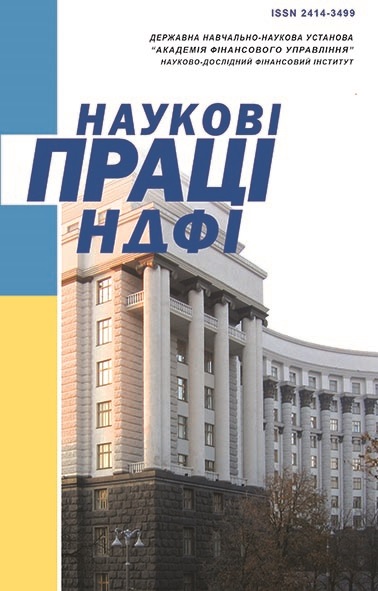
|
№ 3/2022
2. Clark, W. S. (2009). Tax Considerations in Responding to the Global Financial Crisis, Including Main Results from the OECD Tax and Economic Growth Project. OECD Centre for Tax Policy and Administration. Retrieved from www.oecd.org/mena/competitiveness/42045882.pdf. 3. Boiar, A. O. (2011). Anti-crisis policy of the European Union in the period 2008-2010: conclusions for Ukraine. Collection of scientific works of the National University of the State Tax Service of Ukraine, 1, 77–92 [in Ukrainian]. 4. Naydenko, O. Ye., & Kostiana, O. V. (2012). Toolkit Tax Support Economic Development in a Financial Crisis. Business Inform, 10, 199–204. Retrieved from www.business-inform.net/annotated-catalogue/?year=2012&abstract=2012_10_0&lang=ua&stqa=46 [in Ukrainian]. 5. Nechayeva, I. (2020).Tax Reform in the Context of European Integration Processes and the Crisis: Possible Results for Ukraine. Modern economics, 22, 64–71 [in Ukrainian]. doi.org/10.31521/modecon.V22(2020)-10 6. Sidorovich, O. Y. (2012). Analysis of tax methods of neutralization of the financial crisis in the context of the theory of synergetics. Business Inform, 3, 195–198.. Retrieved from www.business-inform.net/annotated-catalogue/?year=2012&abstract=2012_03_0&lang=ua&stqa=52 [in Ukrainian]. 7. Yaroshenko, I. V., & Kostiana, O. V. (2014). The Economic Crisis of 2014 and Ukraine's Anti-Crisis Tax Policy. Business Inform, 10, 318–323. Retrieved from www.business-inform.net/annotated-catalogue/?year=2014&abstract=2014_10_0&lang=ua&stqa=51 [in Ukrainian]. 8. Eurostat. (n. d.). Real GDP per capita. Retrieved from ec.europa.eu/eurostat/databrowser/view/sdg_08_10/default/table?lang=en. 9. European Commission, Directorate-General for Taxation and Customs Union. (2021). Taxation trends in the European Union: data for the EU Member States, Iceland, Norway and United Kingdom: 2021 edition. Publications Office of the European Union. Retrieved from data.europa.eu/doi/10.2778/732541. 10. European Commission, Directorate-General for Taxation and Customs Union. (2013). Taxation Trends in the European Union: data for the EU Member States, Iceland and Norway: 2013 edition. Publications Office of the European Union. Retrieved from taxation-customs.ec.europa.eu/sites/default/files/resources/documents/taxation/gen_info/economic_analysis/tax_structures/2013/report.pdf. 11. European Commission. (2020). VAT rates applied in the Member States of the European Union. Situation at 1 st January 2020. Retrieved from ec.europa.eu/taxation_customs/system/files/2020-10/vat_rates_en.pdf. 12. OECD. (2021). Tax Policy Reforms 2020: OECD and Selected Partner Economies. Paris: OECD Publishing. doi.org/10.1787/7af51916-en 13. Die Bundesregierung. (n. d.). Hilfen für Künstler und Kreative. Retrieved from www.bundesregierung.de/breg-de/themen/coronavirus/corona-kultur-1735378. 14. GOV.UK. (2021). Financial support for businesses during coronavirus (COVID-19). Retrieved from www.gov.uk/government/collections/financial-support-for-businesses-during-coronavirus-covid-19. 15. Gouvernement. (n. d.). Informations Coronavirus. Retrieved from www.gouvernement.fr/info-coronavirus. 16. Council of Ministers. (2020). President of the Government states that government will spare no efforts in reducing social and economic consequences of coronavirus as far as possible. Retrieved from www.lamoncloa.gob.es/lang/en/gobierno/councilministers/Paginas/2020/20200312council-extr.aspx. 17. Belastingdienst. (n. d.). Coronamaatregelen Belastingdienst. Retrieved from www.belastingdienst.nl/wps/wcm/connect/nl/coronavirus/coronavirus 18. International Monetary Fund (IMF). (2022). Fiscal Monitor: Fiscal Policy from Pandemic to War. Retrieved from www.imf.org/en/Publications/FM/Issues/2022/04/12/fiscal-monitor-april-2022. |
|
|
|
|
THE ACADEMY OF FINANCIAL MANAGEMENT |

|
|
|



